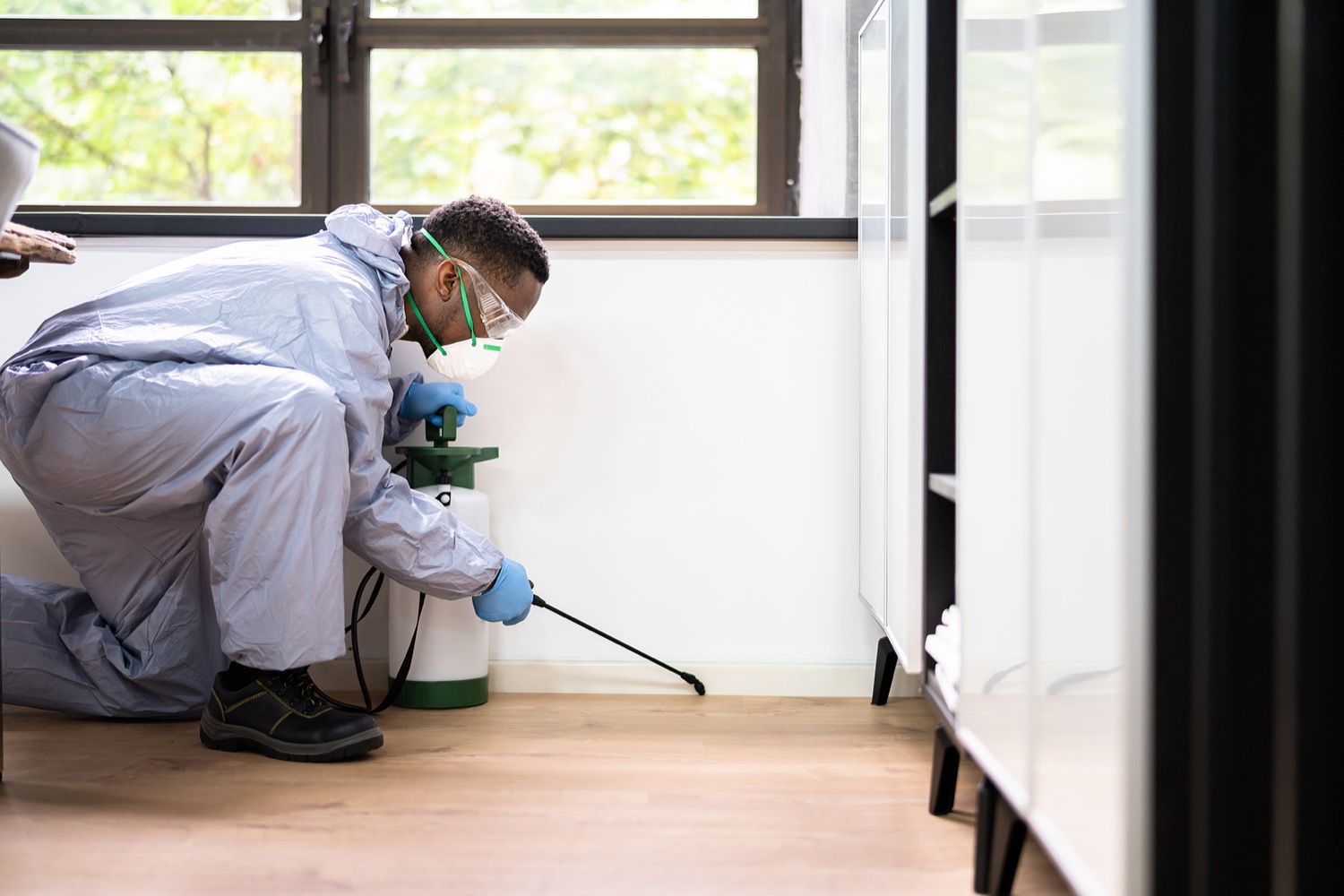Expert A1 Charlotte Bed Bug Exterminator - High Quality Service Assured
Expert A1 Charlotte Bed Bug Exterminator - High Quality Service Assured
Blog Article
Bed Pest Therapy Malfunction: Comparing Chemical Vs. Non-Chemical Solutions
In the realm of pest control, especially when taking care of the persistent problem of bed bugs, the option in between chemical and non-chemical therapy services can be a critical one. Both techniques use distinctive advantages and drawbacks, influencing factors such as performance, security considerations, and total cost. By examining the nuanced information of each technique, a more clear understanding of which course to pursue in resolving a bed pest infestation can be achieved.
Performance of Chemical Therapies
Chemical treatments for bed bug infestations have been commonly identified for their rapid and potent efficiency in removing these bugs. When thinking about the efficiency of chemical treatments, it is important to comprehend that they can provide a comprehensive and fast solution to a bed insect trouble. Professional pest control experts commonly count on insecticides to target bed bugs at various stages of their life cycle, including grownups, nymphs, and eggs. These chemicals commonly work by interrupting the bed pests' nerves, causing paralysis and eventual death.
Furthermore, chemical treatments have the advantage of offering recurring results, meaning that they can remain to remove bed pests also after the preliminary application. This recurring activity is especially advantageous in combating any kind of potential re-infestations. Furthermore, the quick action of chemical therapies can bring alleviation to people encountering serious bed bug invasions, permitting them to restore control of their home quickly.
Safety And Security Problems With Chemical Solutions
One crucial aspect that needs cautious factor to consider when using chemical options for bed bug therapy is making certain the safety of occupants and the environment. Direct exposure to particular chemicals used in bed bug therapies can lead to respiratory system issues, skin inflammation, or other adverse reactions, especially in people with pre-existing problems or sensitivities.
Furthermore, the ecological effect of chemical services is another significant factor to consider. Some pesticides utilized in bed bug treatments may be dangerous to useful pests, wildlife, and environments if they seep right into the soil or water supply. It is important to utilize chemical treatments sensibly, complying with safety guidelines, and considering less hazardous choices to minimize these dangers and make certain the reliable and safe management of bed insect infestations.
Advantages of Non-Chemical Approaches
Considering the possible security concerns and ecological impact connected with chemical solutions for bed pest treatment, discovering non-chemical methods offers an encouraging option with a number of distinctive benefits. Non-chemical therapies are eco friendly, as they do not contribute to air or water contamination, making them a sustainable selection for pest control.
Additionally, non-chemical services can be reliable in targeting bed bugs, consisting of hard-to-reach areas where chemical wikipedia reference treatments may not pass through investigate this site - A1 pest control charlotte nc bed bugs. Techniques such as heat therapy, vacuuming, steam cleansing, and mattress encasements provide detailed elimination without the use of harmful chemicals.
Limitations of Non-Chemical Treatments

In addition, non-chemical therapies usually need several applications to attain effective elimination. This can be time-consuming and might not constantly guarantee full removal of all bed insects and their eggs, specifically in hard-to-reach or surprise locations.
Additionally, the success of non-chemical treatments heavily relies upon correct implementation and thoroughness, which can be challenging for individuals without specialist expertise. Poor application of non-chemical approaches might cause incomplete removal, resulting in relentless problems and the demand for extra treatments.
Therefore, while non-chemical treatments have their benefits, it is necessary to acknowledge these constraints and consider them when determining the most reliable strategy for handling bed insect infestations.
Cost Comparison: Chemical Vs. Non-Chemical Options
Given the restrictions connected with non-chemical treatments, a crucial facet to examine in the context of bed pest monitoring is the price contrast between chemical and non-chemical options. In comparison, non-chemical therapies like warm treatment or heavy steam can my review here be more pricey, with costs varying from $1,000 to $6,000 for a whole home. While the initial cost of chemical treatments may seem lower, numerous therapies might be required to totally eradicate the invasion, potentially raising the overall expense.
Verdict

Taking into consideration the prospective safety issues and environmental effect connected with chemical remedies for bed insect therapy, checking out non-chemical approaches provides an appealing alternative with a number of unique benefits.Provided the constraints connected with non-chemical therapies, an important element to assess in the context of bed pest management is the expense comparison in between chemical and non-chemical options. In comparison, non-chemical treatments like warm treatment or vapor can be a lot more expensive, with prices ranging from $1,000 to $6,000 for a whole home. While the preliminary price of chemical treatments may appear reduced, several treatments may be required to fully get rid of the problem, potentially enhancing the total price.In verdict, when comparing chemical and non-chemical bed bug treatment alternatives, it is vital to consider effectiveness, safety, benefits, restrictions, and price.
Report this page